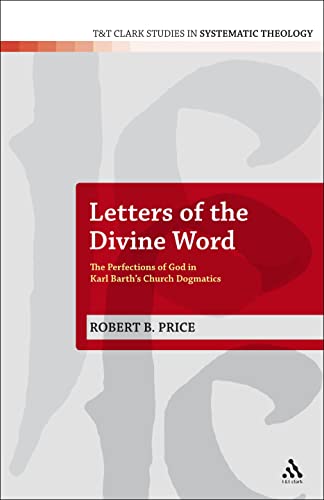I am thankful for this book, which began as one of Phil Ryken’s last sermon series at Tenth Presbyterian Church in Philadelphia before he moved to Wheaton, Illinois to assume the presidency of Wheaton College. Loving the Way Jesus Loves is built around a single, simple, and powerful idea: Jesus is the embodiment and epitome of love. An exposition of the great “love chapter,” 1 Cor 13, should therefore naturally look to and draw upon the life of Jesus. As Ryken puts it, because 1 Cor 13 is a “portrait of love,” it is also “a sketch of the Savior we meet in the Gospels” (p. 28).
Ryken’s approach is significant for several reasons. Perhaps most importantly, it puts first things first by reminding us that we have been loved by Jesus before calling us to love others. Rather than being mere moralism, giving us more things to do, 1 Cor 13 is seen as a response to a love we have already received. Ryken’s Jesus-centered understanding of 1 Cor 13 therefore provides hope and motivation to sinful people who realize their own inadequacy as they read Paul’s magnificent description of what love is and does.
In each chapter of Loving the Way Jesus Loves, Ryken expounds a portion of 1 Cor 13 and then draws on the Gospel accounts of Jesus’ life (or, occasionally, some other portion of Scripture) in order to illustrate the nature of love. Ryken’s exposition of 1 Cor 13 is thorough and careful, but never tedious. The tone of the book is simple, practical, pastoral, and worshipful, with shafts of humor throughout. The book does not try to break new exegetical ground. It is not full of brilliant new insights. It is never flashy. Rather, it is consistently solid, substantial, reverent, and nourishing. Reading it felt to me like eating a good, wholesome meal. I was healthier and stronger after I finished it than when I began.
Particularly helpful is Ryken’s chapter on 1 Cor 13:4: “Love is kind.” Ryken lingers on the seemingly “slender virtue” of kindness and demonstrates that it is far more important than we might imagine. He takes us to Titus 3:4–7, which demonstrates that our salvation itself depends on the loving kindness of God our Savior. God’s kindness is a saving love, a merciful love, a life-changing love, a generous love, and an eternal love. As we receive the kindness of God, we are called to extend kindness to others, and our kindness to others is in fact modeled upon God’s kindness to us.
Also helpful is the chapter on 1 Cor 13:5: “Love is not resentful.” Ryken highlights love’s ability to forgive and to absorb evil that others do to us. This is illustrated by Jesus’s forgiveness of Peter’s denials. Ryken writes powerfully, “Jesus did more for Peter than simply call him to repent. A few hours later he went to the cross and paid the price for his disciple’s sins.” In John 21, we see Jesus giving Peter three opportunities to affirm his love (three opportunities to match Peter’s three denials). Jesus allowed Peter to experience the forgiveness that would launch him into a bold, world-changing ministry.
These are just two examples of insightful and nourishing chapters. The book is consistently excellent throughout.
Two other features of Loving the Way Jesus Loves are worth mentioning. First, a study guide is included at the end, which will make this book even more helpful for use in small groups or individual study.
Second, on the cover of the book, and in black and white images throughout, are photographs by the artist Gene Schmidt and his installation “Lovetown PA,” in which Schmidt set up wooden stencils spelling out the text of 1 Cor 13 in the streets of Philadelphia (see www.lovetownpa.com). Schmidt’s project is intriguing and important. It obviously resonates with Ryken’s book: the artist and the preacher are both bringing the truth of 1 Cor 13 to Philadelphia (and beyond) in their own way. So it is a good idea to include photographs of Schmidt’s work throughout the book. Yet the combination does not work as well as it might, perhaps because something is lost in using black and white rather than color images (see the Lovetown PA website for the beautiful color photographs), perhaps because the relatively few images included in the book fail to provide the full context gained from seeing more of the images together.
This volume proves that it is possible to write voluminously (according to the back cover, Ryken has written or edited over thirty books) and at the same time clearly, powerfully, and helpfully. This book is a gift to the church, and I am grateful for it.
Stephen Witmer
Stephen Witmer is the pastor of Pepperell Christian Fellowship in Pepperell, Massachusetts, is an editorial board member of Themelios, and teaches New Testament at Gordon-Conwell Theological Seminary.
Other Articles in this Issue
The gist of this new book by Peter Enns is that evangelicals should revise their expectations of Genesis and Paul—with reference to Adam and the fall—in order to relieve perceived tensions between Christianity and evolution...
In June 2011, the Presbyterian Church in America (PCA) passed an overture entitled, “A Call to Faithful Witness...
I was very grateful to David for sending me a copy of his essay before publication...
Is it stating the obvious to say that a children’s bible is not a Bible? Perhaps...
Sacramental Supersessionism Revisited: A Response to Martin Salter on the Relationship between Circumcision and Baptism
by David GibsonMartin Salter has recently argued that Reformed paedobaptists are mistaken in citing Col 2:11–12 ‘as evidence that baptism replaces circumcision as the covenant sign signifying the same realities...







